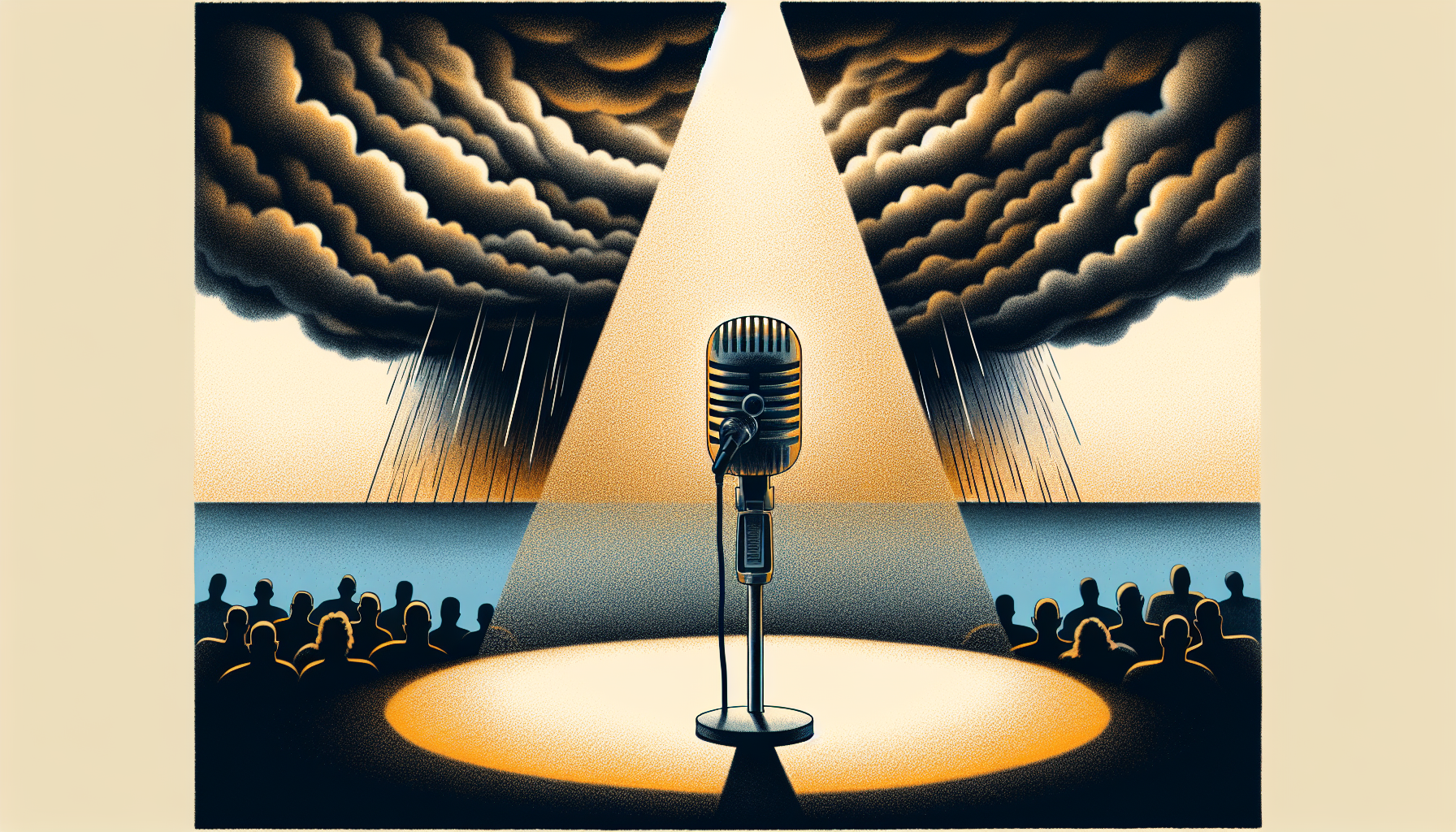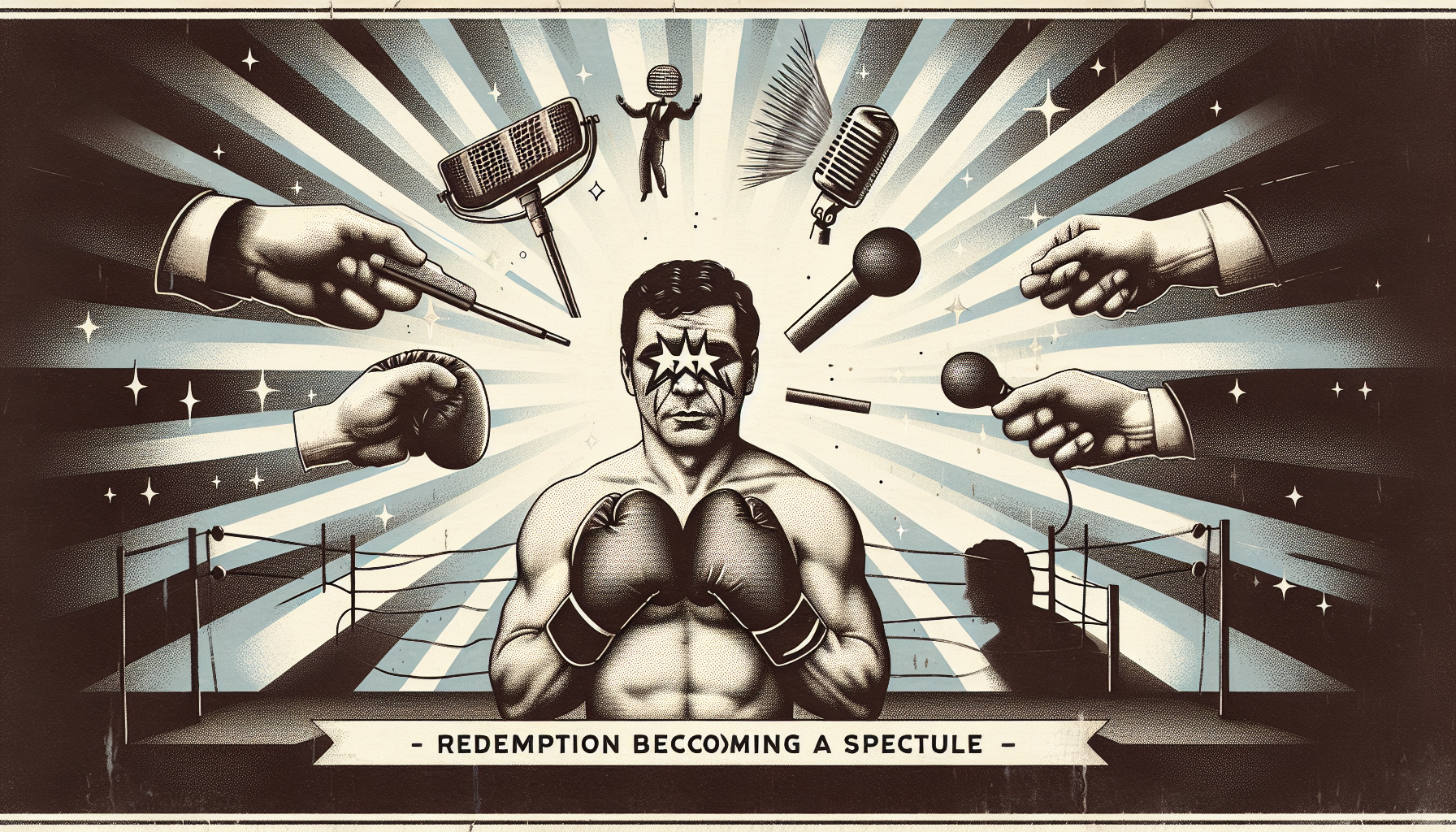Title: Echoes from a Green Room: Jimmy Kimmel, Hillary Clinton, and the Warning We Didn’t Hear
Dear readers,
Sometimes the most seismic cultural shifts don't begin with breaking news, but with a whispered warning during a commercial break. This week, we peer behind the velvet curtain of late-night television to revisit a conversation that happened not on air, but just off it—a cameo moment that now resonates like a prophecy unheeded.
The setting? ABC’s Jimmy Kimmel Live!, circa early 2016. The guest? Then-presidential candidate Hillary Clinton. The line? Four words that would later land like thunder: “Be careful what you wish for.”
Let’s rewind.
The Comedian and the Candidate
Jimmy Kimmel, at this moment not just a comedian but a reluctant conscience of the nation, recalls saying to Clinton with playful optimism, “I hope Trump gets the nomination. I think he’ll be a slam-dunk for you.”
It’s a sentiment many liberals shared at the time. Donald Trump, reality TV star and political novice, seemed too outrageous to be taken seriously—a walking punchline in a suit. But Clinton, ever the seasoned strategist, didn’t laugh. Her face reportedly changed. Her response was quiet, almost maternal in its foreboding: “Be careful what you wish for.”
It stopped Kimmel cold, he admits in a new Rolling Stone interview. So cold that the moment still echoes in his mind like the gavel dropping after a sentence.
The Shock That Stays
To grasp the weight of that exchange, Kimmel compared it to another moment of seismic disbelief: the O.J. Simpson verdict.
“When O.J. was found not guilty, I was absolutely shocked,” he tells Rolling Stone. “I had that same feeling.” A chilling comparison, but apt. Both moments shook Americans' faith in their institutions—justice in one case, democracy in another.
The thread tying them together? A belief that, in the end, the country would “do the right thing.” And when that belief fractures, the crack reverberates across culture, politics, and even comedy.
When Punchlines Aren’t Funny Anymore
Since that eerie conversation, Kimmel’s role as a late-night host has mutated. Once a jester dancing on the edge of politics, he has become a kind of sentry—guarding, provoking, lamenting. “Now I see myself more as a place to scream,” he says.
And scream he does—on-air jabs at Trump’s policies, tongue-in-cheek rants about Supreme Court theatrics, and monologues about healthcare that turn personal. His now-famous “Jimmy Kimmel Test,” coined during a heated debate about the repeal of the Affordable Care Act, showed a comic leaning on tragedy. His son’s heart condition wasn’t a punchline; it became policy.
But even personal stakes can’t penetrate the armor of political obstinance. He recalls inviting Senator Bill Cassidy onto his show in good faith, believing perhaps naively that a doctor-turned-lawmaker would champion healthcare sensibly. Cassidy assured him publicly. Privately, it felt like theater.
Kimmel’s verdict? “He lied to my face.”
A Nation Addicted to Fame
What makes Jimmy’s story more than just a celebrity testimonial is his diagnosis of us—the audience. The real sting didn’t come from Trump’s win, he implies, but from how inevitable it felt in hindsight. “The biggest reason Trump beat Kamala,” he now says with chilling clarity, “is because he’s a celebrity.”
Full stop.
Not policy. Not charisma. But brand equity. The kind you can’t vote down and can’t parody away. For Kimmel, the real tragedy may not be the outcome—but how obvious it was all along.
A Cultural Mirror, Cracked
So what do we learn here—not just from Clinton, or Kimmel, or even Trump, but from ourselves?
We learn that cynicism dressed as entertainment can be more powerful than intention.
We learn that late-night jokes can predict political fault lines.
We learn, most of all, that warnings often sound like throwaway comments until hindsight sharpens them into alarm bells.
Sometimes, the green room is the place where history whispers loudest. And in Jimmy Kimmel’s case, he heard the omen—we just didn’t listen with him.
Until next time,
Stay awake. Our screens may entertain, but they also educate. Not through facts, always—but through foreshadowing.
Yours in truth and television,
A Watcher of Screens & Subtext

